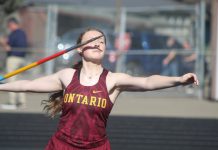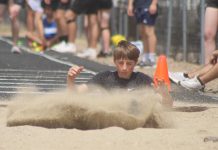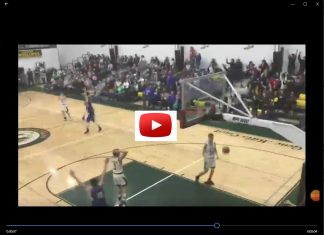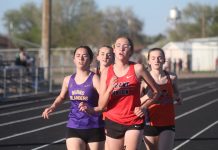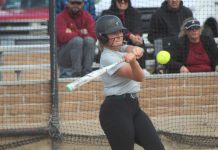In today’s world of technology, getting the word out immediately is important. Our followers want to know what is happening in the world of sports in eastern Oregon and the OSAA decision on fall sports was paramount to many. Thus, when we received word from OSAA on fall sports, we put the word out.
However, most news takes a day or so to really take in. This is the case with this decision. We need a day or two to think about the ramifications. We need to talk with those much smarter than us and grab their view. Most importantly, we need a chance to speak with the athletes actually on the court or field. As adults, we make decisions every day effecting teenage lives and rarely think of their thoughts.
With the delay of cross country and volleyball and the temporary suspension of football around Oregon, many lives will be touched. As with any decision, there will be consequences. The following is our follow up on the OSAA Executive Board decision, not from board members, but from those playing and coaching the games.
Sports holds a small percentage of students in school-no sports, no school. There will be student athletes choosing to forego their senior year if sports are not available. We have spoken with some considering the route of GED or online school. A 17-year old mind sees the present, not the future. We hope the ones following this route complete the coursework necessary to complete a high school education and not fall by the wayside due to the decision. (LOSS)
Student athletes will leave Oregon to play in other states. Bordering states have chosen to press forward with fall sports, leaving Oregon students with a choice to make. Nathan has the choice to live with grandparents in Montana to play football or Sally can live with an aunt and uncle in Idaho and play volleyball. Each state has differing rules regarding transfers, but ultimately Oregon will see student athletes wearing the jerseys of other state’s high schools. (LOSS FOR OREGON, WIN FOR OTHER STATES)
Oregon athletes will be at a disadvantage for collegiate athletic scholarships. High school teams, high school athletes become progressively better as the season heads towards the end. This is especially true in cross country-most runners see their best times in the final two or three meets of the season. Colleges look at numbers-catches, tackles, spikes, serve percentage, meet times. For Oregon athletes, the numbers just will not be on paper for college coaches to peruse. In addition, a tremendous learning and growth curve takes place between junior and senior year for many. A shortened season or cancellation of the season will not show that growth. (LOSS)
Football in spring, something has to go. The majority of schools in eastern Oregon are 4A or lower. That being said, most sports fight for participants each and every season. If football is moved to a spring sport, another one or more sports will suffer from lack of athletes. In addition, schools will need to make tough decisions. High school athletics, like a business, run on a budget. This is the best example we can think of to show our followers the problem. You have a pickup (football). This pickup makes you money by hauling your stuff, renting it out to friends, runs with few problems. You have a second old pickup (tennis, golf). This pickup constantly needs new parts, makes no money for you, but is important to one child and you cannot sell it. Football brings in paying spectators, concessions, t-shirt sales. Golf does not charge for the parent to follow the golfer around the course and watch. If both sports are in the spring, schools will not be able to afford both sports, both in dollars and athlete numbers. (LOSS)
Towns will suffer. In many of our towns, the concessions are hosted by a non-profit service group cooking the hamburgers and selling the popcorn. These groups then use the proceeds for scholarships or projects in the town. The loss of or shortened season will transfer to fewer scholarships awarded by these groups and projects left undone due to lack of money. In addition, sports bring visitors to your town. These fans purchase gas, grab a meal or may even spend the night, bringing much needed income to small towns. That cash is now lost. (LOSS)
This is not a condemnation of the OSAA decision or a statement the decision was incorrect. This is a look at the possible fall out as the fall season approaches and athletes and fans sit at home, rather than in the stands or court or field.


